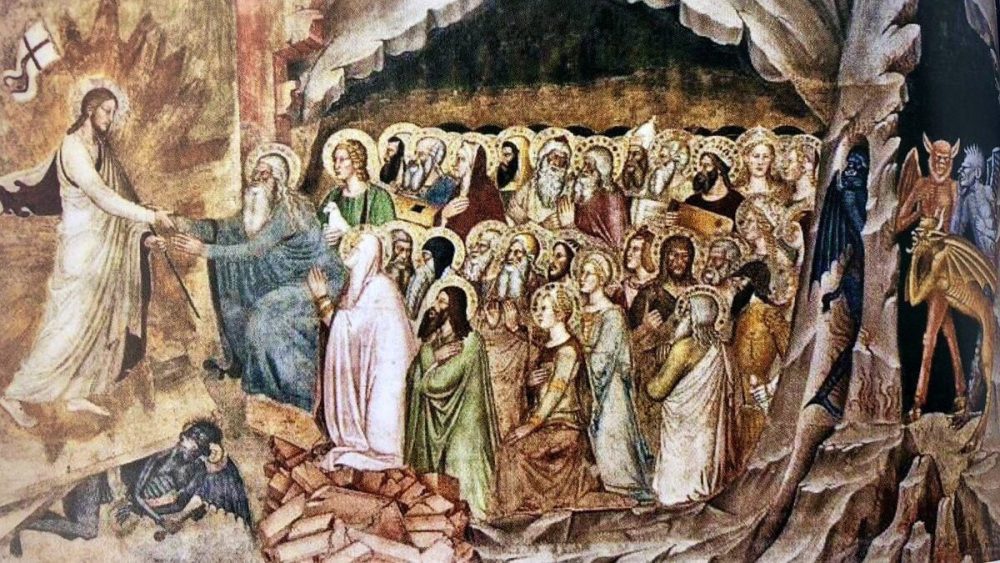Fr Paolo Consonni, MCCJ
“There were seven brothers; the first took a wife, and died without children; and the second and the third took her, and likewise all seven left no children and died. Afterward the woman also died. In the resurrection, therefore, whose wife will the woman be? For the seven had her as wife.” (Lk 20:29-33)
The Sadducees, who did not believe in the resurrection of the dead, presented this question to Jesus. It is a complex case of “levirate marriage”, a patriarchal institution meant to protect a woman whose husband has died by having one of the husband’s brothers marry the widow. It is better not to judge this institution with our modern mentality. At a time when women had little autonomy, these laws were meant to ensure that a widow could have some means of subsistence, especially when childless. Yet, the feeling that a widow was somehow considered a “possession” to be inherited is undeniable.
The question in this Sunday’s Gospel (Luke 20:27-38) about relational life after the resurrection, is relevant. Will we recognize each other in heaven? Will we still be able maintain special connections and intimacy? Or, are our relationships only temporal and therefore unimportant?
Let us remember that God created us with the basic vocation to love and to live in communion with Him and with each other. We are relational beings, and we all long to find a “you” who might satisfy our deepest desires to love and be loved and to become fruitful. Marriage powerfully symbolizes this reality.
But no human person can completely satisfy this longing. There is a separateness which is inherent to our individuality. Our human heart is so complex and mysterious that the task of becoming more intimate with each other is truly endless: even the most loving and enduring couples can assure you of that. Finally, death is the painful experience of separation which every relationship needs to face sooner or later.
The more we love, the more we want to “possess” a person, completely and forever. Reality, however, constantly frustrates this desire. Is eternal love impossible? Will all relationships end with a separation?
Quite the contrary. In heaven, relationships will not end, but find fulfilment and completion. Every relationship is in fact the sign (and in the case of marriage, the sacrament) of God’s love for humanity, the quality of which was completely revealed on the Cross: total self-giving, all encompassing, and merciful and offered to all. This love is now offered to us through the Holy Spirit so that we might experience it in our human relationships in the different circumstances of our lives. The difficulties we encounter are meant to purify our relationships and increasingly orient them towards God.
In heaven this process will be completed, and God will be all in all (1 Cor 15:28). We will then love each other without the need to protect our own individuality, without being hindered by evil or sin and without the fear of separation caused by death. We will fully love God in every person, and every person in God. We will love each other without “possessing” anyone, exactly in the same way as the Father, the Son and the Holy Spirit love each other within the Trinity.
Through our different vocations we, in our earthly life, are already called to love in this way. Far from diminishing the value of human relationships, God gives them a depth that is impossible to human nature. We reach this depth through “chastity”, a virtue which is not restricted to the sexual sphere: it is the capacity of living out our relationships according to their truth and oriented toward their final destiny, that is communion in God.
Pope Francis described this beautiful reality in a very concrete way speaking about St. Joseph: “Joseph is traditionally called a “most chaste” father. That title is not simply a sign of affection, but the summation of an attitude that is the opposite of possessiveness. Chastity is freedom from possessiveness in every sphere of one’s life. Only when love is chaste, is it truly love. A possessive love ultimately becomes dangerous: it imprisons, constricts and makes for misery. God himself loved humanity with a chaste love; he left us free even to go astray and set ourselves against him. The logic of love is always the logic of freedom, and Joseph knew how to love with extraordinary freedom. He never made himself the center of things. He did not think of himself, but focused instead on the lives of Mary and Jesus” (Patris Corde 7).
When imitating the saints, we try to love in this way (and we are all called to do so!), then heaven already meets earth even in our imperfect families and communities, and in our bodies, we are already “like angels, children of God, children of the resurrection” (Lk 20:36). Only this kind of love is in actuality love forever. Marriage ends in this life, but the love we express in our relationships, including marriage and friendship, will be an integral part of the happiness of eternal life, and once transformed by the power of the Resurrection will never be lost.


 Follow
Follow


